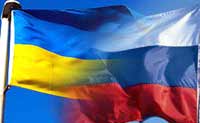Ukraine files 500-million-dollar lawsuit against Russia
The Ukrainian association of the Union of Depositors of Vnesheconombank (Foreign Economic Bank) of the USSR filed a lawsuit at the Court of Stockholm against the Russian government. The organization represents the interests of about 50 large enterprises of Ukraine, which demand Russia should return reimburse with them for the funds which had been frozen on accounts of the above-mentioned bank after the collapse of the USSR, the Nezavisimaya Gazeta reports.

Experts evaluate the amount of claims at $500 million. This amount is being claimed by 88 enterprises of the former Ukrainian Soviet Socialist Republic.
Timur Khromayev, the director of the association, a former official at the Ukrainian Finance Ministry, said that the initiators of the action do not interfere with big politics, but only ask for a refund of investments of the Ukrainian enterprises in the Russian economy. “The investments were illegally expropriated by a neighboring state,” Khromayev said.
Ukrainian experts do not exclude that the lawsuit of the association will become just a prelude to a much bigger scandal connected with USSR’s debts and assets. Kiev raised this subject in 2006, but it can surface again now against the background of current fuel problems between Ukraine and Russia.
Spokespeople for the Ukrainian administration have repeatedly emphasized the fact that they have serious trump cards for fuel talks, which may push Russia towards making concessions to Ukraine in terms of raising prices on natural gas to the European level. Some Ukrainian officials acknowledge that the question of USSR’s debts and assets was one of such trump cards. It is worthy of note that Ukraine is the only country of the Commonwealth of Independent States, which did not acknowledge Russia to be the successor of all debts and assets of the Soviet Union.
On December 4, 1991, Ukraine signed the Treaty of Succession, having claimed the responsibility to pay back 16.37 percent of the Soviet debt. Ukraine also set forth its claims for the same volume of assets. The Russian Federation fell to the share of 61.34 percent of USSR’s assets and liabilities. The percentage was based on the contribution of Soviet republics in the GDP of the USSR.
In December 1994, during the period of the financial and economic crisis on the post-Soviet space, the Ukrainian government signed a new agreement about the so-called “zero variant,” which stipulated Kiev’s rejection of the Ukrainian part of USSR’s debts and assets. However, in February 1997, when the situation in the country began to ameliorate, the Ukrainian Parliament refused to ratify the second document.
That is why, the Ukrainian Foreign Ministry considers the first agreement to be valid nowadays, under which Kiev can count on its 16.37 percent in Soviet debts and assets.
On the other hand, Vnesheconombank closed the subject of Soviet debts in 2006. The bank paid the remaining debt of $21.3 billion plus a bonus of $1 billion to the Paris Club of Creditors. Russia discharged all obligations with that payment to all countries of the Commonwealth, including Ukraine.
The Ukrainian Foreign Ministry released several harsh statements afterwards, claiming that Kiev had not entrusted Moscow with clearing the debt. Some Ukrainian officials said that Russia paid back the Ukrainian debt at its own initiative. Ukraine is certain that the assets of the former USSR cost a lot more than the Soviet debts.
Yevgeny Yasin, the Russian Minister for Economics in 1994-1997, said that spokespeople for the International Monetary Fund and other Western financial institutes asked former Soviet republics in 1991 to be responsible for the debt of the USSR. “The USSR still existed at the time when those talks were held, but the West touched upon that question anyway. No republic of the Soviet Union wanted to claim joint responsibility for that. As a result, it was Russia that shouldered the entire burden.”
Source: agencies
Subscribe to Pravda.Ru Telegram channel, Facebook, RSS!





